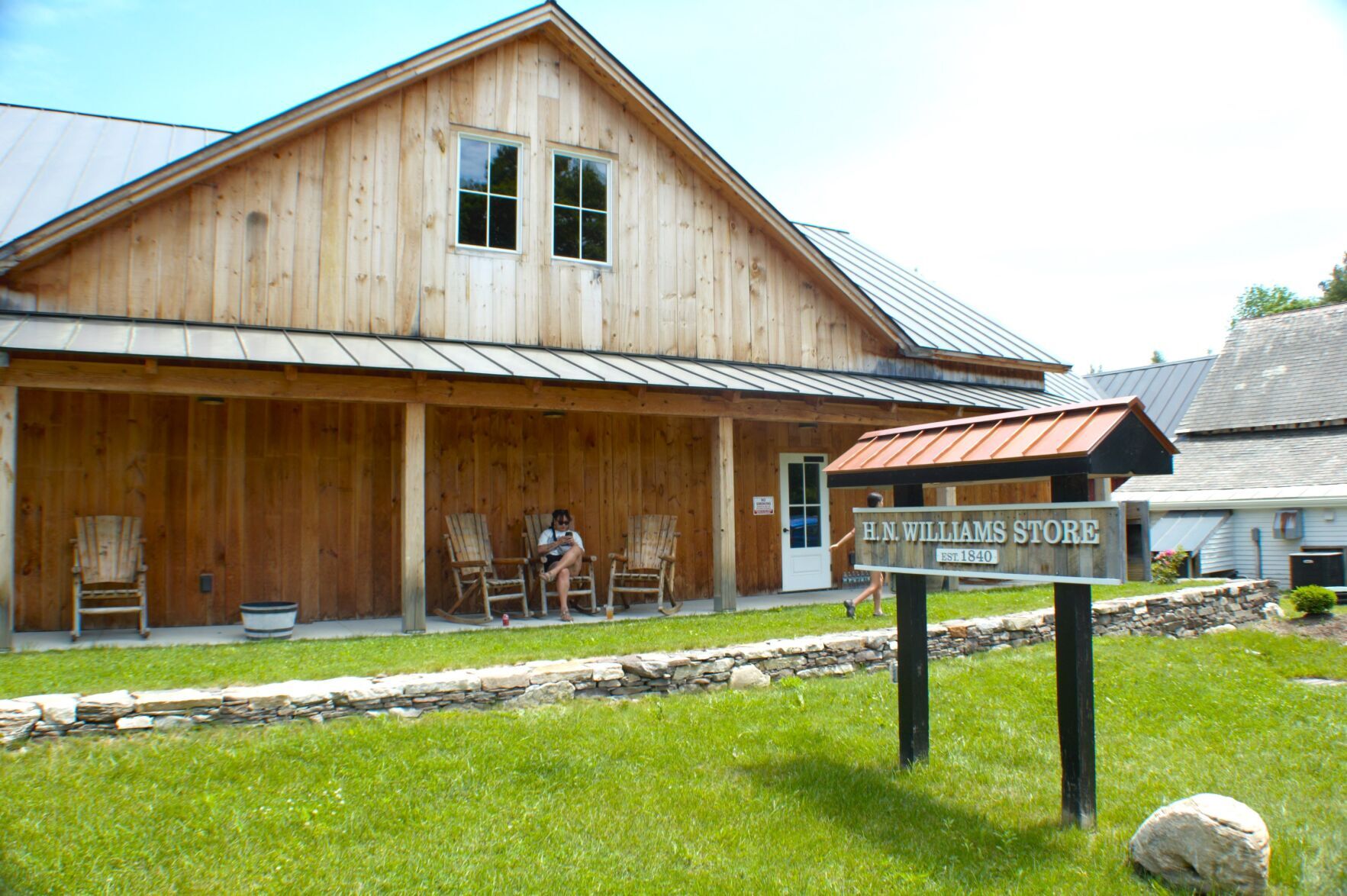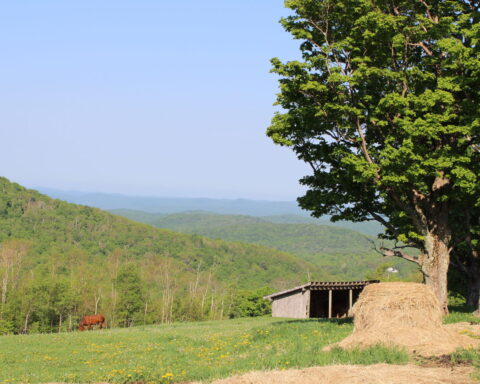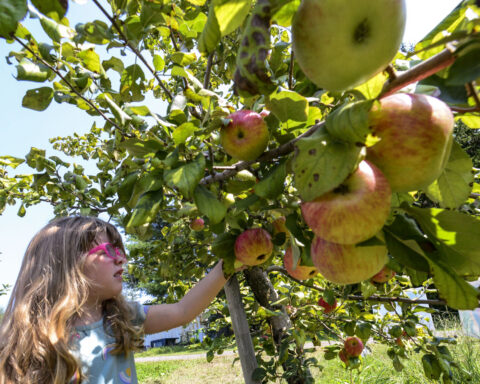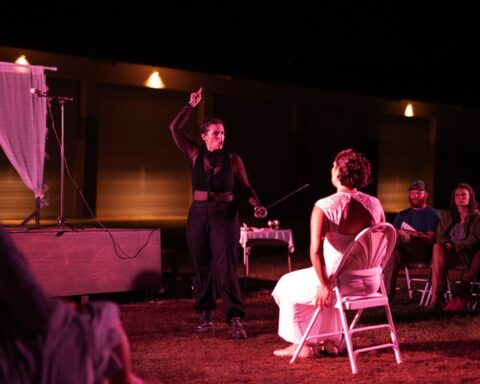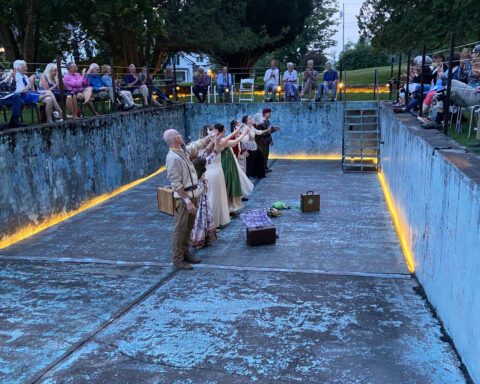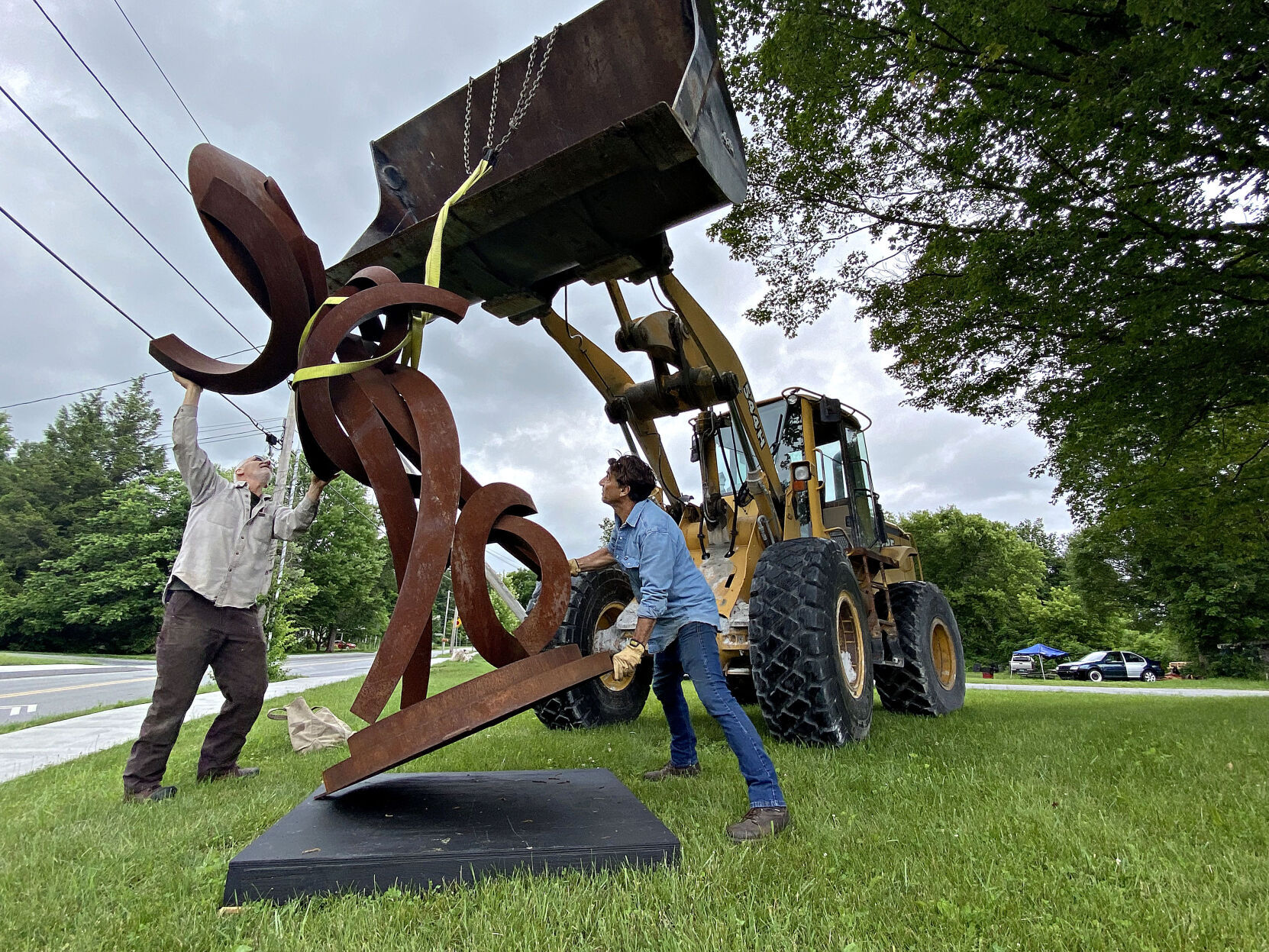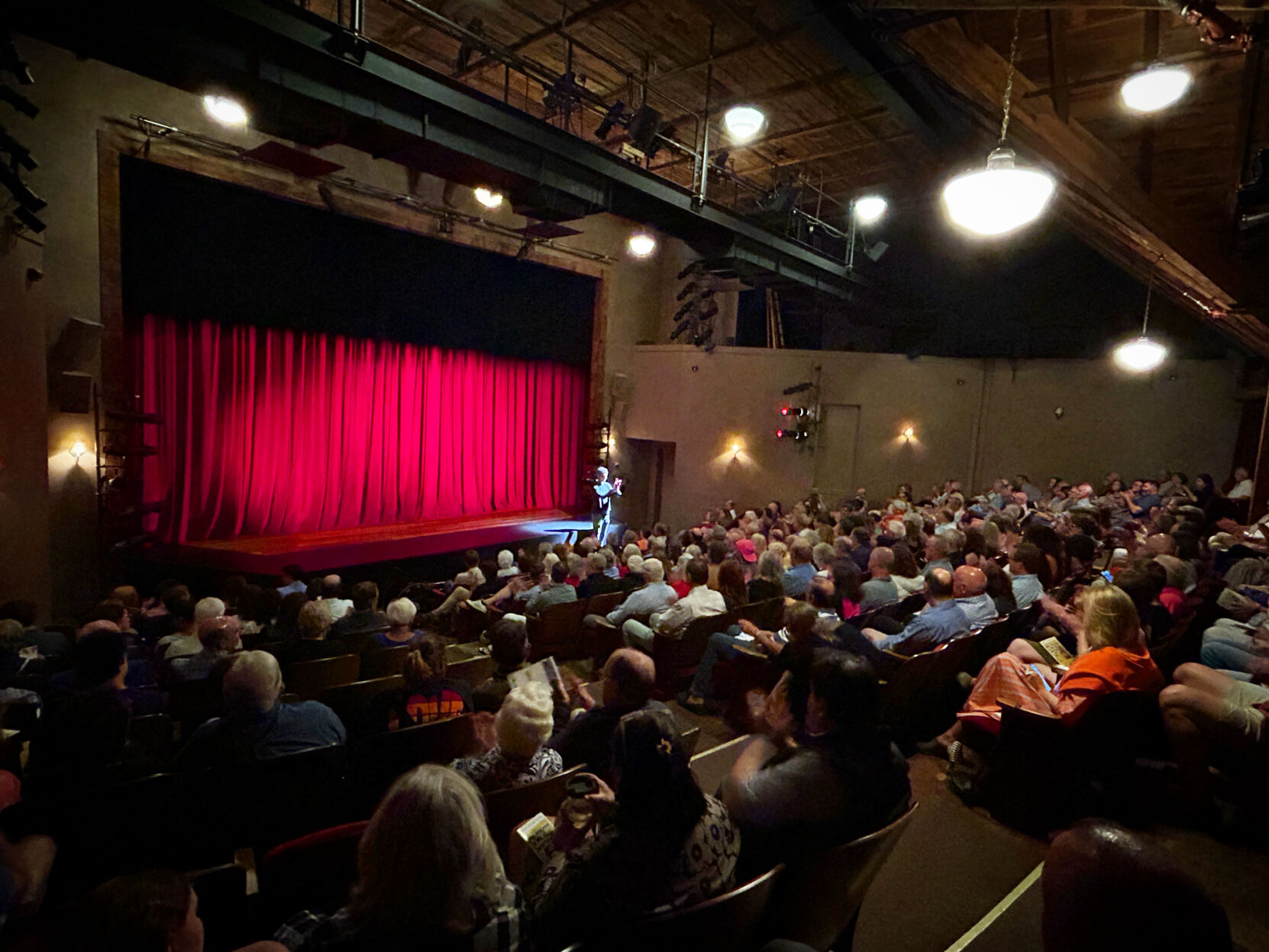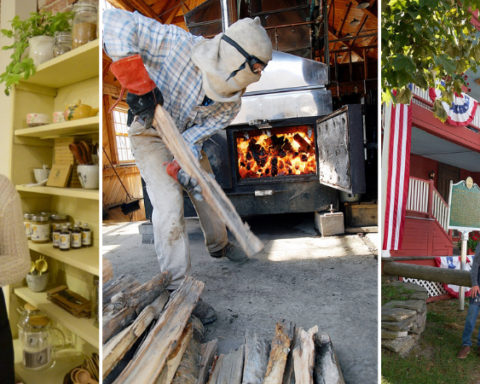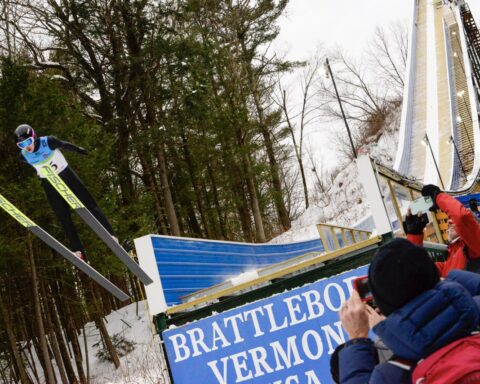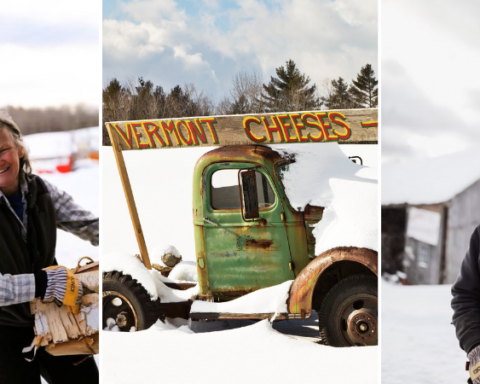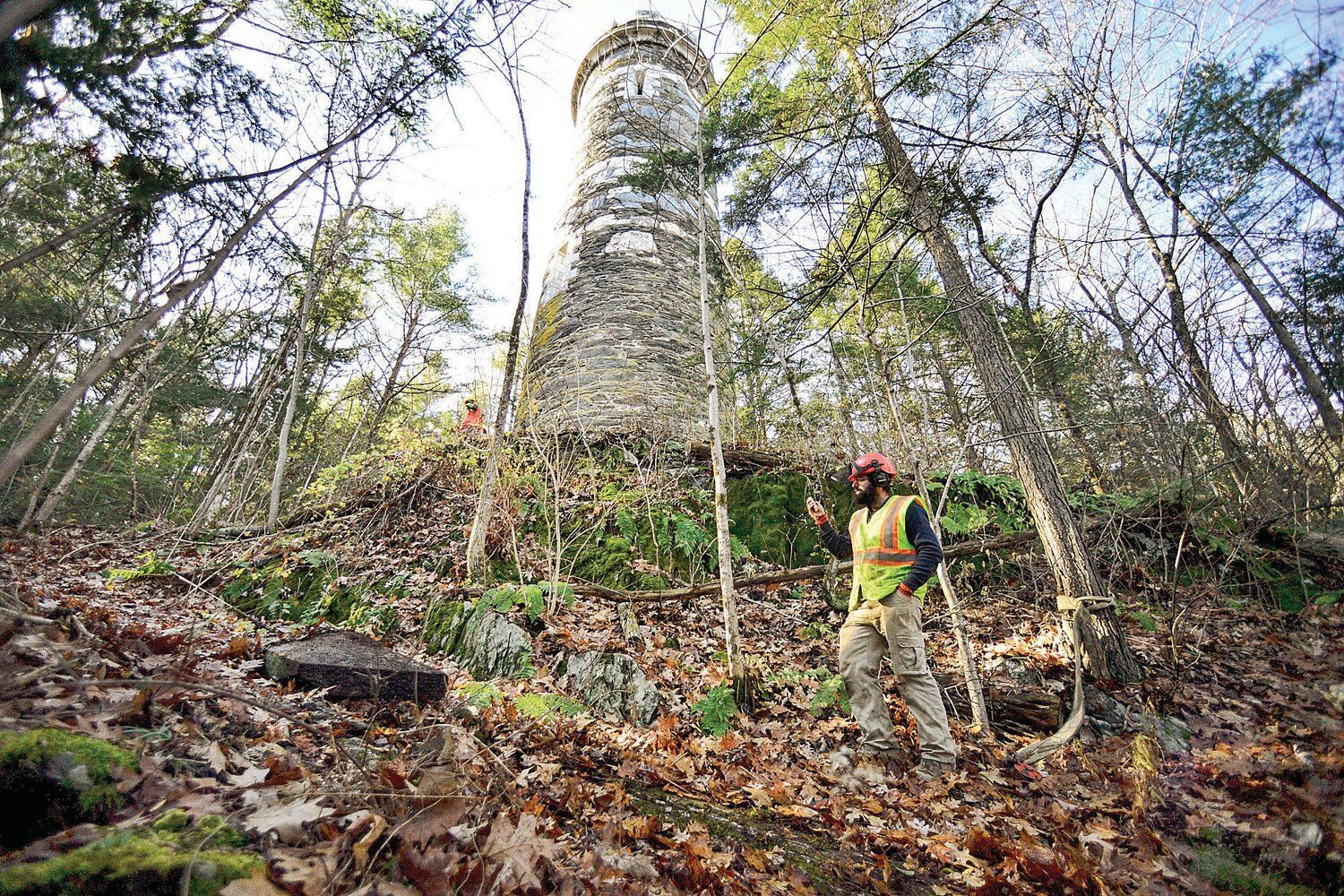By Tim Wassberg, Vermont Country Magazine.
DORSET — H.N. Williams Store has been in the Brownlee family for generations. For Billy Brownlee, owner and operator of the country store in Dorset, it has always been about family, but also about moving the business forward without losing the charm of its inherent and lasting legacy.
Brownlee says he remembers coming in and working at the store when he was 12. His parents would go away on vacation and he would stay there with his grandmother Ada Rumney, whose great-grandfather William Williams established the store in the 1840s.
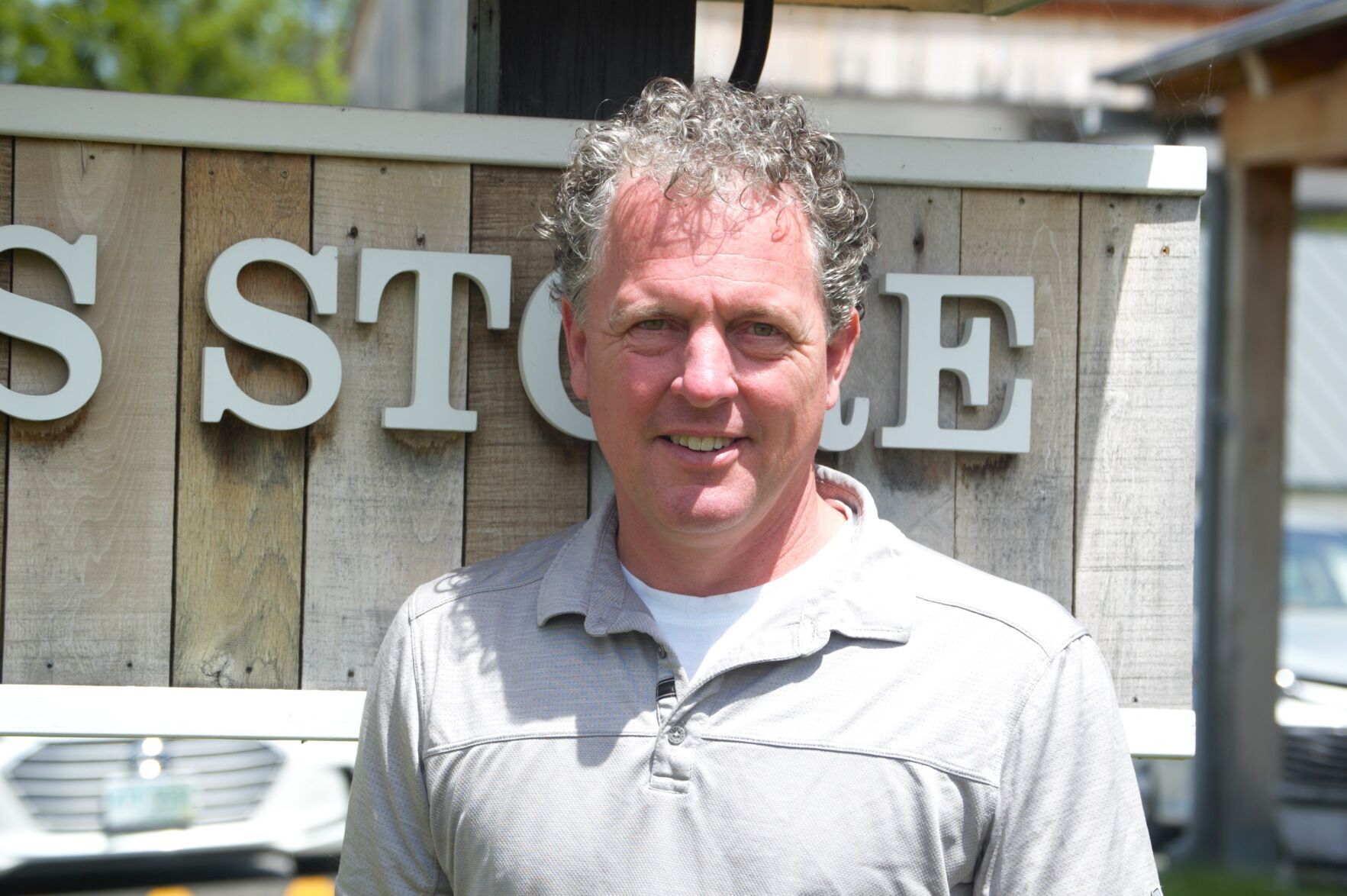
Brownlee relates that he has five siblings (“I’m the third oldest”). He would stay with his grandmother and go out and play baseball while his family was away. “So I had my own thing.” Brownlee used to love jumping on the grain bags inside one of the barns where all the Vermont products were kept. “And I can remember as a kid jumping around on all the bags,” he remembers. “And today out in the barn, I see my niece and my nephew come in and jump around on all the bags, too. It’s like a rite of passage.”
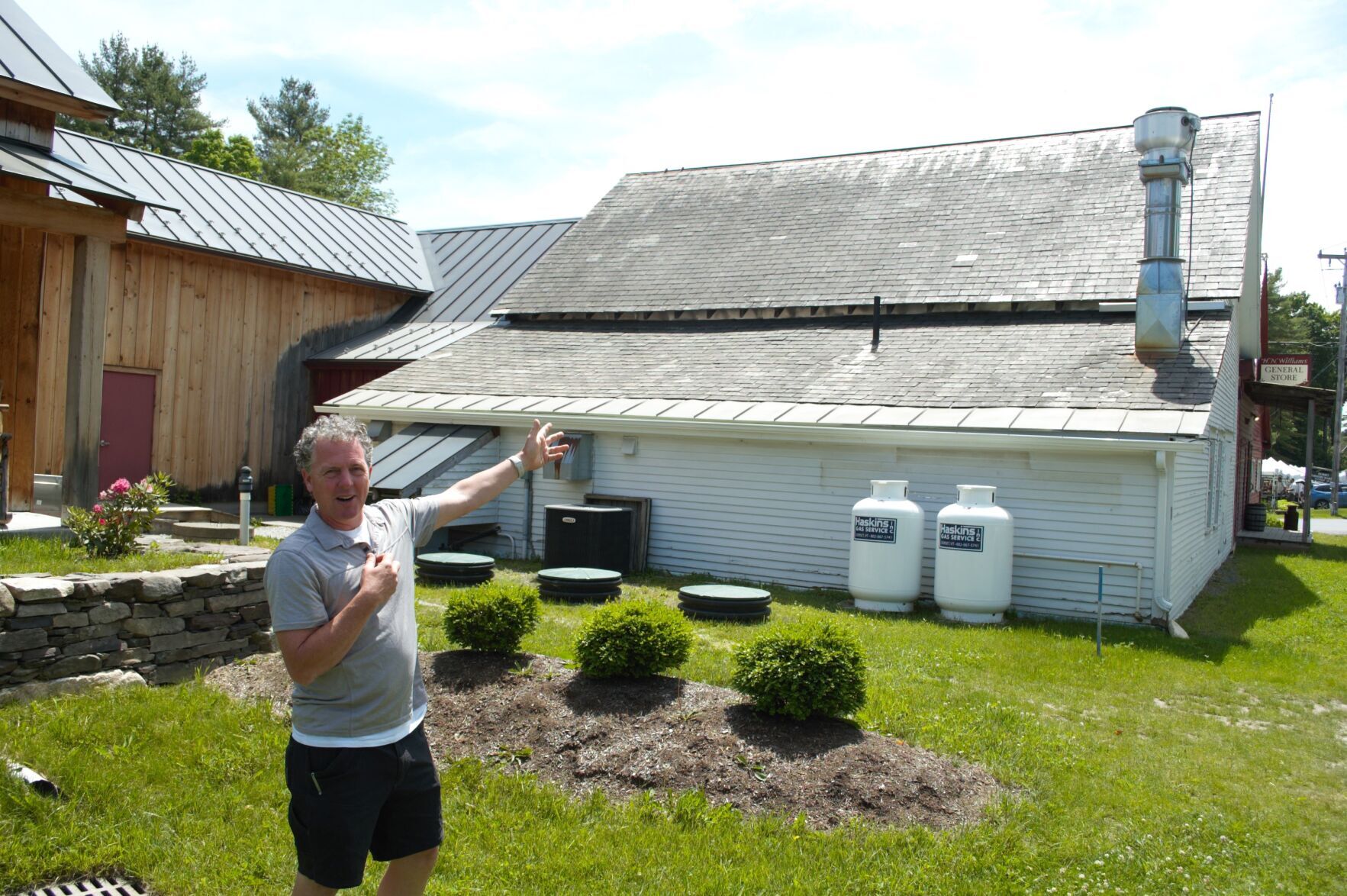
Brownlee grew up across the street from the store on Route 30. He went to Burr and Burton Academy in Manchester and then to the University Of Vermont. He earned a degree in management of information systems. His brother, Gerritt, who is a partner in the business, got his degree in computer science. Billy’s wife Blair, who is a teacher, will be shifting her focus this year to come over to the store full time.
“We’re somewhat technically savvy for an old country store,” Brownlee jokes. He says there are improvements from a technical standpoint that have been essential to recent growth, like inventory control and point of sale systems. Sometimes, though, he understands, it can be hard to change. His parents ran the store with his grandmother for nearly 40 years. It was simply three or four people running the store for a long time.
Brownlee says, when he became more active in the business, he started making proposals for improvements. “I’m like ‘Let’s do this!’ And I am very thankful (my parents) had faith in me, and they trusted me.” At the time, the store did not have a lot of debt. In that way, it became a leap of faith for the family to move forward on certain initiatives like adding onto the store. “They had to sign off and say, ‘Okay, we’re all in!'”
Growth also requires trust from the community. Brownlee says that relationship has evolved as well. “There’s confidence that the community knows that not only are we giving back, but we’re doing the right thing.” This includes supporting community events like the farmers market or helping out their employees. Brownlee understands that when people visit H.N. Williams, it can be like a social event. “It’s about that familiarity and (being on a) first-name basis,” he says. “You don’t get that when you live in metro areas.”
The evolution to computer systems just in terms of buying and tracking what people are interested in was key. “Country stores — in general — there’s usually not that willingness to change,” continues Brownlee. He says it is much an anomaly that they are a sixth-generation going on seventh-generation store. “Because usually there is not the next generation with enough energy to take it on, or they don’t move with the times.” He says it pretty much came to that point in the early 2000s when he told his parents if they didn’t put an inventory control system in, he would be out. “So that was the beginning of us scaling up.”
He says that, even in 2000, they were busy. “But my grandmother, she really didn’t (want to) change much.” He said the way the store looked in 1985 didn’t look much different from how it looked in 1940. His parents came into the business in the mid-1970s with both his father and mother taking on a lot of the work.
When Brownlee took a vested interest in the store, and wanted to prove his mettle to his parents, it was about creating results. “I remember even before I came back full time, we started doing tent sales during Columbus Day weekend.” He said there was some pretty good success with that venture. Once his parents saw that his experiment had worked, they were open to doing more.
A big part of H.N. Williams’ inventory control was paper statements, because they had house accounts (and still do). Brownlee’s mother Ruth would write everything in. He remembers her saying “Well, what am I going to do if the computer is going to do it?” He simply told her to take care of the people coming through the door. They wanted to see her smiling face. That was the connection.
Also, at the same time, Brownlee admits, they didn’t have a strong accounting system. “But with good financials, you can make better decisions.” He says from a business standpoint, even though they were expanding in the two years before, the pandemic in 2020 changed everything for the store — he says for the better. “I never thought we were going to be as leveraged in groceries as we are,” he explains. “And to be where we’re at right now, and to be having the success we are having with (groceries), I’m pretty psyched.”
H.N. Williams carries cheeses, dairy, produce, beer, wine and more. “We have hamburger. We have steaks. They are all vacuum-sealed so they have shelf life,” he explains proudly. Brownlee says that they are going to ramp up in their next renovation to create even more freezer space as well as deli cooler space to carry more items.
The key, Brownlee says, is that they’re trying to get people into a routine to buy their groceries. “Then all that other stuff … the clothing, the daily things, it just kind of snowballs into the fact that this is a fun, good place to shop.”
Brownlee says the store is very deceiving from the outside in actually how big it is. He says usually the first time people come in, “they are blown away a little bit.” It also helps, he says, that the diversification of products they offer gives them some resiliency allowing them to weather changes.
Brownlee was also surprised, post-COVID, that they were selling much more animal feed. “Everyone now wants to grow their own food in their backyard,” he explains. As a result, they are selling more lawn and garden products because everyone wants to be more self-sustaining.
As a business, he admits that H.N. Williams can withstand a lot. “We’re not essentially a grocery store, but we have enough product categories that we can adjust and change pretty quickly without a lot of red tape,” he explains. Brownlee says the store is naturally protected as a business because of the population that lives in the local area, and also benefits from a very busy road on Route 30. “It’s almost busier than Route 7.” He says many people come through from Middletown Springs, Pawlet and even Granville, N.Y., on their way to Manchester, which he explains is the economic hub of the area.
Brownlee says that the locals are pretty proud of “their” store. “They come and show it off,” he explains, smiling. “We get that a lot. People will come up to me and say, ‘We’re being tour guide today,’ and they’ll show (us off). It’s unique.”
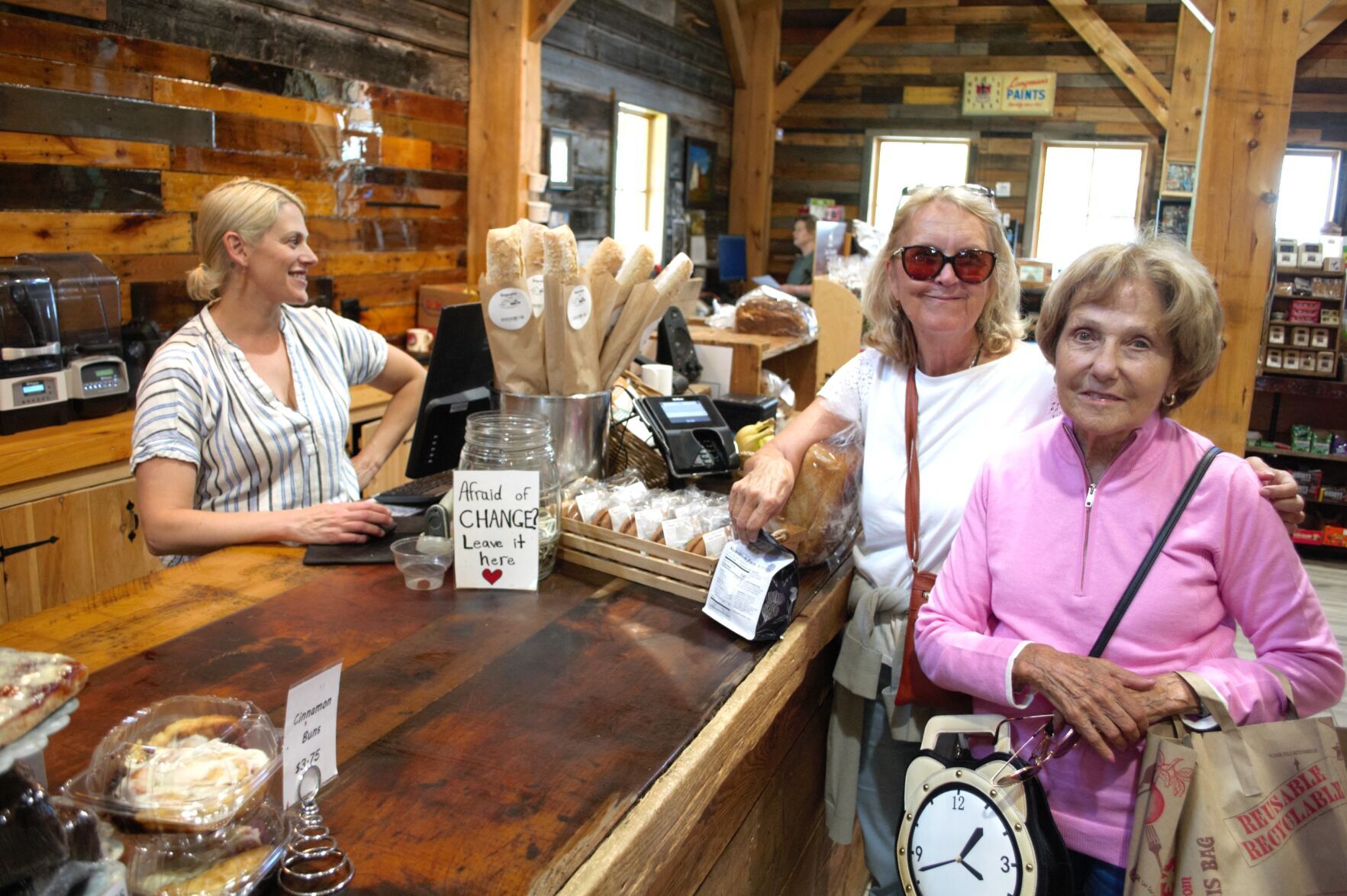
Running a store like this is also about balancing the essence of the old with the new. Brownlee says the store does get some customers who occasionally say, “I kind of miss the way it was.” He admits his grandmother would probably have kept the place the same, maybe as something simpler. “I think, deep down, she might have scoffed at some of the changes that were taking place.” He says he can hear her voice saying, “Well, it worked for us … why wouldn’t it work for you?”
Brownlee says everything he is doing is preparing the store to have legs. He says that was an essential part of the conversation when he put the gas pumps in five years ago. He admits those might one day change to electric chargers.
That expansion, including the new front store as well as other upcoming improvements, started with the purchase of the front parcel of land from Brownlee’s uncle in 2015. This is the space now occupied by the new addition and gas pumps. The addition, in his estimation, has vaulted up traffic even more.
The front area, which is a blend of new pallets and reclaimed wood, also fuels business, and was, in itself, a learning experience. Originally, there was table seating for the deli in the front area, which changed during the height of COVID because of distancing.
Brownlee says, after a couple of months in that situation, and once the pandemic settled down, “We were like, ‘Well, let’s just take the tables out for a little bit.'” He started testing merchandise there and added a new grab-and-go open air cooler with sandwiches and salads.
“That open air cooler has been awesome, just in the sense that it’s just easy. It’s visible. If it’s in there, it’s moving. We have very little spoilage.” The sandwiches and salads are still country and homemade, so the feeling of home still remains.
Brownlee says that he and his family are very proud of where they have taken this business. “To have so many people on the property, and to hear the comments … there’s a lot of pride that goes along with that, from everybody,” he says.
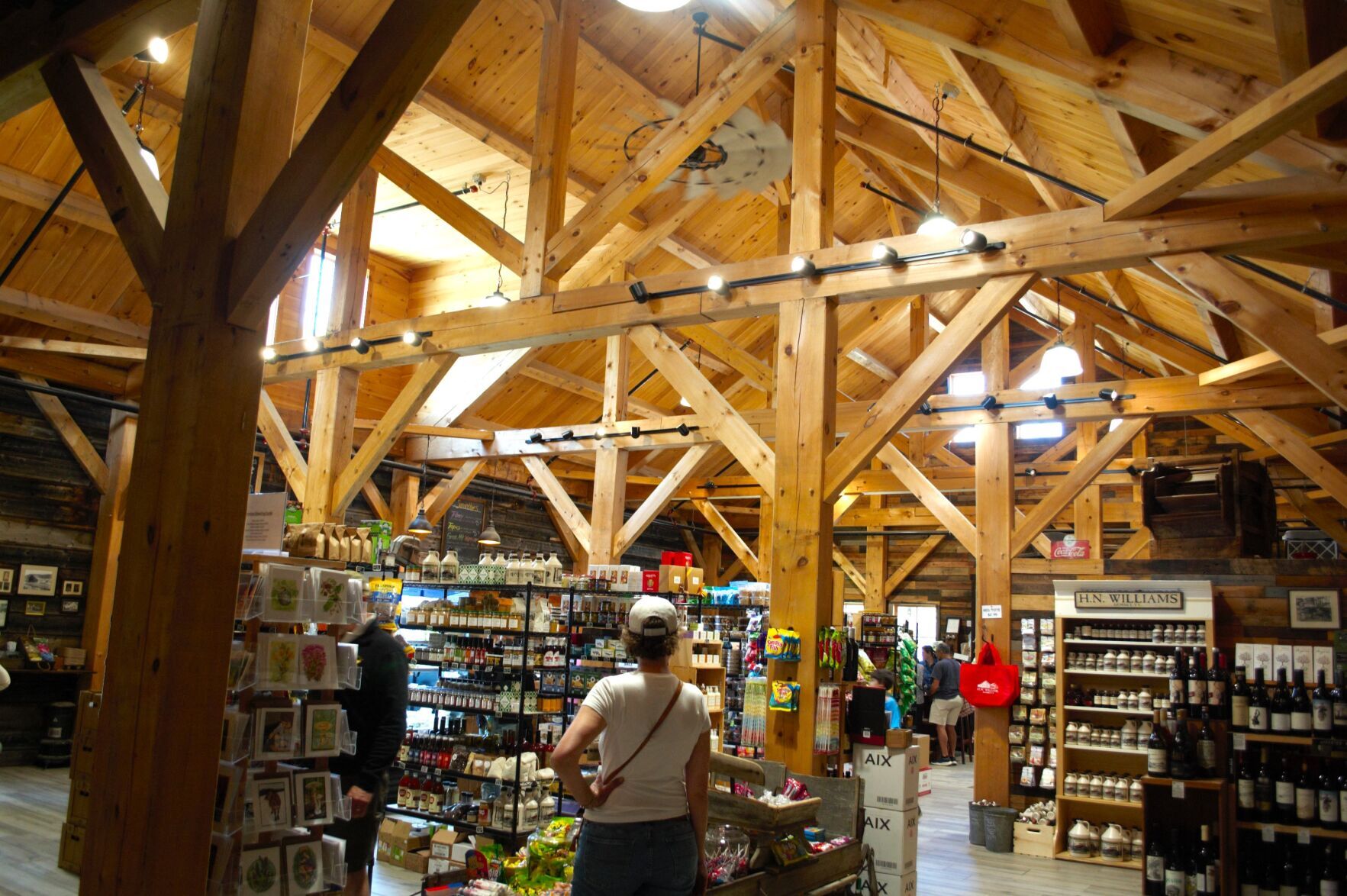
When he built the new front area, “I was literally ripping the pallets apart to reclaim wood to integrate with that construction.” He and his brothers had to demo their uncle’s former building to create the new one. “We essentially said, ‘We’re going to replace post and beams in the building, but we’re going to leave everything else,'” says Brownlee proudly. “And then we’re going to integrate everything else.’ Brownlee and his brothers were literally ripping the siding off to reclaim the wood. “That little bit … it adds character to the structure, because if it was all brand new, it wouldn’t have the same look and feel.”
Brownlee is also looking to expand the back entrance space and make it into a new climate-controlled area. It just requires the wait for the permit to begin construction. “We’ve dealt with this before,” he explains. Brownlee recollects when he had to do a dig underneath the old store to reset the foundation. “We were open the whole time. We had an access ramp in … and you could literally hear the machines underneath while you were shopping.”
The original building that the store was housed in (and that got the foundation upgrade) got moved to where it is now around 1900. Brownlee relates that the house itself was rolled down on logs from Dorset Village. When it was “popped down” on the land, the workers only likely placed some scatterings of marble down as a foundation. The original store used to be the old harness/leather house.
Across the yard on the side of the hill was the old sugar house. Brownlee’s grandfather Austin Rumney used to be one of the larger maple syrup producers in the area in the 1960s and 1970s. By the time he died in 1992, in his 80s, that business had become very scaled back. “There was no one really there to pick up the pieces of his business at that time,” Brownlee says.
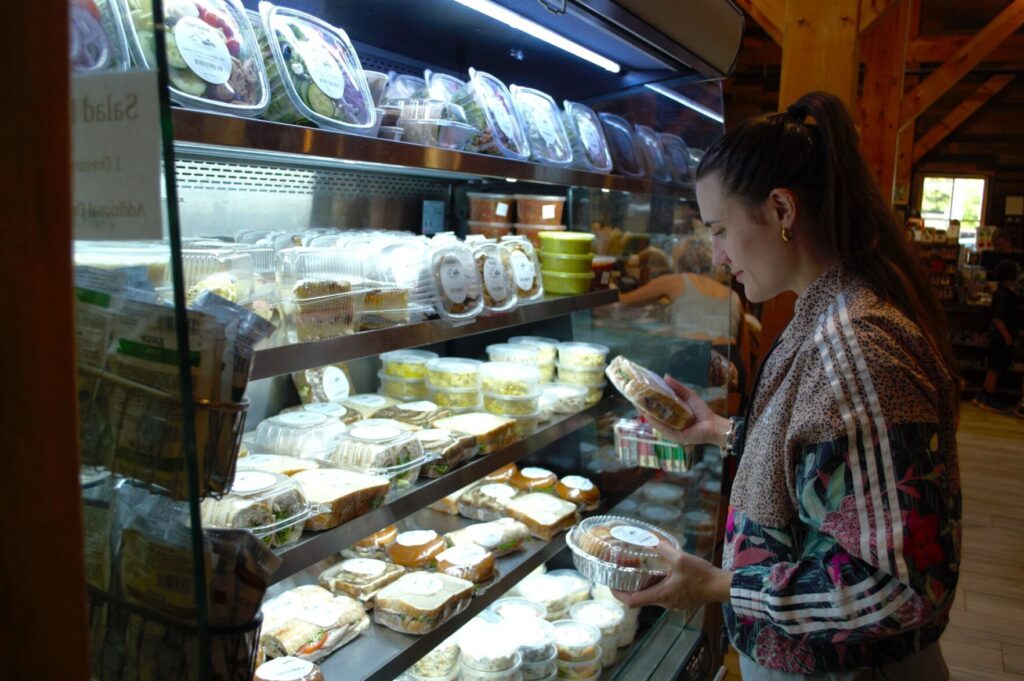
Brownlee says H.N. Williams as a legacy helps support the Vermont brand, in its longevity and in that “It used to be two barns. Now it’s three or four barns.” He says he knows it is not a big box store, “but you have a lot of the same products that you can get there and yet it is very functional at the same time.”
Brownlee says country stores, as a whole, haven’t had it easy moving forward with the times. “It’s tough.” And Brownlee admits that the path has never been a straight line, even for H.N. Williams. But, in continuing to forge the journey as a family and as a business, Brownlee hopes to retain and enhance the H.N. Williams legacy for the next generation.
Tim Wassberg, a graduate of New York University’s Tisch School of The Arts, Tim has written for magazines such as Moviemaker, Moving Pictures, Valley Scene, Conde Nast Traveler UK and Casino Player as well as newspapers including The Maverick Observer (Colorado), The New Pelican (Fort Lauderdale) and The Cherokee Tribune (Georgia). He currently serves as the Managing Editor of the Bennington Banner. He enjoys distinct craft beers.
